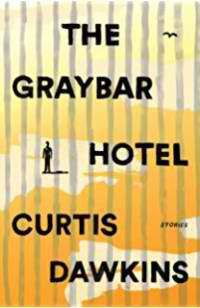Deep Freeze by John Sandford
 Monday, October 2, 2017 at 9:36AM
Monday, October 2, 2017 at 9:36AM 
Published by G.P. Putnam's Sons on October 17, 2017
David Birkmann starts Deep Freeze by killing a woman he was hoping to seduce. The killing is unplanned, not quite an accident but certainly not premeditated. After arranging the body to make the death appear to have been accidental, Dave the Bug Boy (exterminator by trade) bugs out. But why does the dead woman’s body turn up in the water by the sewage treatment plant?
Virgil Flowers’ latest mystery involves small town secrets, and there are a lot of those in Deep Freeze. Some involve affairs, some involve adventurous sex, some involve rivalries and jealousies. Of course, nothing is really a secret in a small Minnesota town that craves gossip.
A subplot involves Barbie and Ken dolls that have been modified in ways that … well, let’s just say that Mattel doesn’t like it. That’s a fun diversion from the main story, although the subplot raises serious questions about whether law enforcement agencies (at the bidding of politicians) should use their scarce resources to help corporations with civil matters like copyright infringement. Virgil doesn’t dwell on the issue, but he’s clearly annoyed to have his murder investigation interrupted by an investigation of people who really aren’t harming anyone (unless you count Barbie’s reputation).
The plot hustles along as Virgil interviews one town resident after another, matching stories, discarding theories, trying to figure out who is telling the truth and whether their lies relate to the murder. A couple of brawls enliven the story, but this is more a police procedural, a detective at work, than anything else. It isn’t a whodunit (we know whodunit from the opening pages) and the mystery of the displaced body gets solved well before the ending, so Deep Freeze is less a novel of suspense than an entertaining slice of Virgil Flowers’ life. To be fair, there are some tense moments at the end, but this isn’t an action novel. Since Virgil is an entertaining character who surrounds himself with entertaining characters, I’m fine with the story’s low-key nature.
I love John Sandford’s deadly accurate portrayal of small town politics, including the sheriff who doesn’t want to investigate anyone if the investigation might irritate influential people or cost him votes. I also love the friendly insults that characters exchange. Sandford’s novels are worth reading for the banter, apart from the plots. Readers searching for a traditional mystery will need to search elsewhere, but Sandford fans who want to spend time with an old friend will find little to complain about in Deep Freeze.
RECOMMENDED



